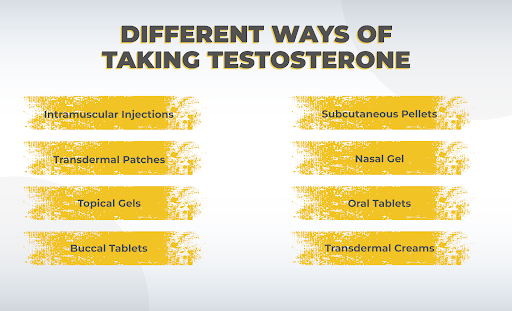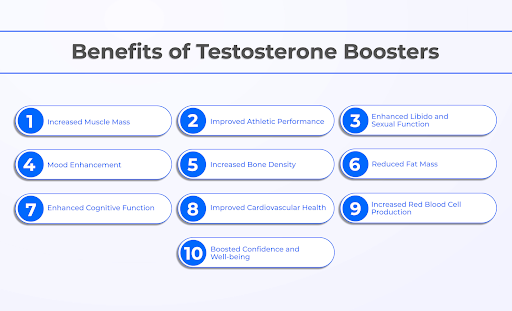Ashwagandha is getting popular as a natural supplement for boosting testosterone levels. Though it is greatly known for its many benefits, can Ashwagandha testosterone boosters be an option?
The answer is yes, but there is much to consider when discussing natural remedies for such persistent conditions. Ashwagandha, or Withania somnifera, is linked to a holistic approach to various ailments.
Let us understand what Ashwagandha, the traditional Indian Chinese ayurvedic medicine, does for your testosterone levels and your body’s overall well-being.

What Is Ashwagandha?
Ashwagandha, or Withania somnifera, is a nightshade herb widely used in Indian herbal medicine. It grows in the Middle East, Africa, and India. You may have heard of Indian ginseng or Indian winter cherry, which are common names for this herb.
This herb has grown in popularity in the health and dietary supplements industry due to its abundance in testosterone boosting supplements for men.
Like many other plants, Ashwagandha can improve general health and reduce oxidative stress hormone, anxiety, insomnia, etc. Besides, the selling point of this herb is its positive impact on male health. Herbal formulas containing this plant can help increase muscle mass, reduce body fat percentage, size, physical strength, hair growth, etc.
Modern medicine and health supplement companies have taken advantage of this miracle herb. For a long time, they have been selling their potential benefits to the masses.
The scientific evidence relating to Ashwagandha’s ability to raise testosterone is unclear. Also, there are exceptions and some bumps along the way.
What Can Ashwagandha Do?
There is limited scientific evidence regarding the effects of Ashwagandha supplementation on testosterone levels. However, few clinical studies suggest that Ashwagandha may have a mild but noticeable positive impact on testosterone levels in healthy males.
Before delving into specific studies, it is important to understand the basics of testosterone and its significance. Testosterone is the primary male sex hormone responsible for maintaining sex drive, facilitating erections, promoting muscle strength, physical and mental health, promoting optimal bone density, and supporting consistent energy levels and cognitive function.
Low testosterone levels are associated with several negative effects, including a weakened sex drive, reduced muscle size and physical strength, sleep disturbances, and mental health problems like fatigue, depression, and difficulty concentrating. These issues can significantly impact both physical and mental well-being and men’s overall quality of life.
It is natural for testosterone levels to decline slightly as men age, typically starting around 30 or 40 years old. However, certain health conditions and medications can contribute to low testosterone or “low-T.”
For more detailed information, you can read what can cause low testosterone levels and the signs that may indicate inadequate testosterone production.
Ashwagandha and Testosterone
The current scientific research on the effects of Ashwagandha on testosterone levels is limited but promising. In comparison, there are no large-scale clinical trials specifically examining the hormonal and vitality effects of Ashwagandha, like those conducted for testosterone replacement therapy (TRT). A few small-scale studies have investigated the effects of dietary supplement containing Ashwagandha on testosterone levels.
It’s important to note that the number of studies in this area is limited, and the available studies are not large in scale, with the largest involving only 150 participants. However, scientific evidence suggests a positive association between Ashwagandha and testosterone.
In a randomized double-blind, placebo-controlled crossover study examining the effects of Ashwagandha root extract, subjects who received the supplement twice daily demonstrated significant improvements in muscle strength, size, and recovery.
Furthermore, the supplementation saw significantly larger average increase in testosterone levels approximately five times higher than the placebo group. Both groups participated in resistance training programs as part of the study.
Read More
One study published in 2010 in the journal Fertility and Sterility examined the effects of Ashwagandha root on testosterone and regulating reproductive hormone levels in infertile men. The researchers found that Ashwagandha treatment improved testosterone levels and other reproductive hormones associated with sperm quality and male fertility.
In a separate study in 2015, researchers investigated the effects of Ashwagandha extract on muscle mass, strength, and testosterone levels in men aged 18 to 50. The study participants engaged in resistance training for eight weeks, and the group that received the Ashwagandha supplement showed a greater increase in strength, muscle size, and testosterone levels than the placebo group.
Another study published in 2019 examined the effects of Ashwagandha on hormone levels, including testosterone, in overweight males. The results showed a significant increase in testosterone levels in the group that received Ashwagandha extract compared to the placebo group.
While these findings are promising, it’s important to remember that the research on Ashwagandha’s effect on testosterone is still limited. The studies conducted so far indicate a positive link, but further research is needed to fully understand this relationship’s extent and compare Ashwagandha with other options for increasing testosterone production.
Additionally, it remains unclear whether using Ashwagandha leads to noticeable improvements in the symptoms of low testosterone. Therefore, it’s best to consider Ashwagandha as a potential option for boosting testosterone levels rather than a proven treatment for symptoms associated with low testosterone.
How Can Ashwagandha Impact Testosterone?
Ashwagandha boosts testosterone levels; that is what one study has claimed. One study revealed that Ashwagandha increased testosterone levels by 15% and DHEA (a key component in testosterone elevation) by 18%.
Another study administered Ashwagandha twice daily and observed significant improvements in testosterone levels, muscle size, strength, and recovery. Notably, Ashwagandha increased testosterone levels five times higher than the placebo group. These findings demonstrate the positive effects of Ashwagandha on testosterone.
Ashwagandha supplements have been shown to have remarkable antioxidant properties, protecting against oxidative damage in the body. This antioxidant effect extends to the testes involved in testosterone production, leading to improved hormone levels.
Furthermore, Ashwagandha has been found to enhance the production of luteinizing hormone (LH), a key regulator of reproductive hormone levels responsible for testosterone production. Withania somnifera supplementation exhibits these effects on hormone regulation.
When considering the dosage for Ashwagandha’s testosterone-boosting effects, most studies have used a dosage of approximately 500 mg. However, some testosterone boosters reviews like TestoPrime claim that natural supplements contain higher doses that are still safe and effective.
The variability in doses seen in products and randomized controlled trial is mainly due to the lack of an officially recommended dose for Ashwagandha. It is advisable to consult with a healthcare professional for guidance or experiment with different doses to find what works best for you. Additionally, combining Ashwagandha with vitamin D can potentially enhance the results.
Benefits of Ashwagandha For Men
Ongoing research on Ashwagandha continues to uncover its potential benefits across various conditions. Here are some additional advantages of this remarkable herb:
Stress and Anxiety Relief
Ashwagandha influences specific brain chemicals to promote relaxation, alleviate anxiety, and improve sleep quality. The stress levels can deplete significantly if this herbal supplement is taken correctly. It has been shown to lower cortisol levels and help with chronic stress.
Blood Sugar and Fat Reduction
Ashwagandha has shown the ability to lower blood sugar levels and reduce fats in the bloodstream. Studies have compared its effects to medications used for managing type 2 diabetes.
Enhanced Memory and Focus
Ashwagandha positively impacts brain function, enhancing memory and the ability to focus on tasks. It also aids in faster reaction times and attention spans.
Increased Energy and Endurance
Ashwagandha can improve athletic performance by enhancing lung capacity and heart health. It also boosts energy levels, reducing fatigue.
It’s important to note that research in the field of Ashwagandha is constantly evolving, and further studies are needed to fully understand its potential benefits.
How To Use Ashwagandha?
Since the herb is famous for its many benefits, it is used in many forms. The most common way to use Ashwagandha is as a supplement; you can find it as a tablet, powder, or liquid extract. But, the herb is earthy and bitter, making eating the raw powder unpleasant. Hence, many people prefer vegan-friendly capsule testosterone supplements to boost testosterone naturally.
Moreover, the herb does not contain any ingredient that needs FDA approval. Hence, you can easily find the pills at any health stores, pharmacy, or natural supplement vendor.
A 125 mg to 5 g dosage is effective for people of all ages. Thus, when you buy a product, ensure that its potency and dosage do not exceed 5g and are less than 125 mg. Plus, before buying any supplement, consult a medical specialist to see if it is best for your condition. Lastly, start with a small dosage and slowly build up your tolerance.
Potential Side Effects of Ashwagandha Root Extract
Ashwagandha is one of the safest herbs to consume. It contains no controlled substance or active compounds that commonly result in irritation and discomfort for many people. Even though there are not any substantial side effects of the herb, here is what you should watch out for:
Ashwagandha on its own is very safe., However, if you already use medication for another issue, consult a doctor before using it. Other medicines may interact with the herb’s compounds, leading to unexpected problems. It is also possible that nothing will happen, but it does not hurt to be careful. Usually, medicine for blood clotting, increasing heart rate, and blood pressure can react with supplements. Moreover, you should also be cautious if you take drugs for autoimmune disorders. Thus, be extra careful if you use these medicines.
People with weak or sensitive stomachs may experience some problems as well. Ashwagandha is an herb rich in nutrients, and it activates many bodily systems to achieve a balance between functions. For people with weak stomachs, this may generate a lot of heat. Hence, it results in increased appetite or GI problems. Other symptoms may include diarrhea, cramps, or digestive disorders. In severe cases, people may experience ulcers.
The long-term effects of Ashwagandha are not known. It is safe to use the herb continuously for up to three months. However, using it for longer may be ineffective or dangerous. Further, using Ashwagandha testosterone boosters in large amounts may result in vomiting, diarrhea, or cramps.

Conclusion: Does Ashwagandha Increase Testosterone Levels?
Ashwagandha is a natural wonder with great medicinal importance. One of its many benefits is increasing testosterone production. The available research connecting the herb and the male hormone is insufficient to clearly show its usefulness.
Ashwagandha has shown a significant increase in male hormone production in men without prior exposure to testosterone boosters for older men. It also increases testosterone production in overweight men, indicating the herb is potent.
Moreover, these boosters have shown a rapid increase in muscle mass and strength in people without prior or any resistance training experience.
The mechanism of action for the booster is ambiguous. Due to the lack of ample research, there are only theories about how it works.
With many benefits come a few side effects as well. Although Ashwagandha is a safe herb, there can be complications in some specific cases.
For instance, if you use other medications, you should consult a doctor before using any Ashwagandha testosterone booster. Further, people with weak stomachs or a history of allergies should also be careful while using such natural testosterone boosters.



